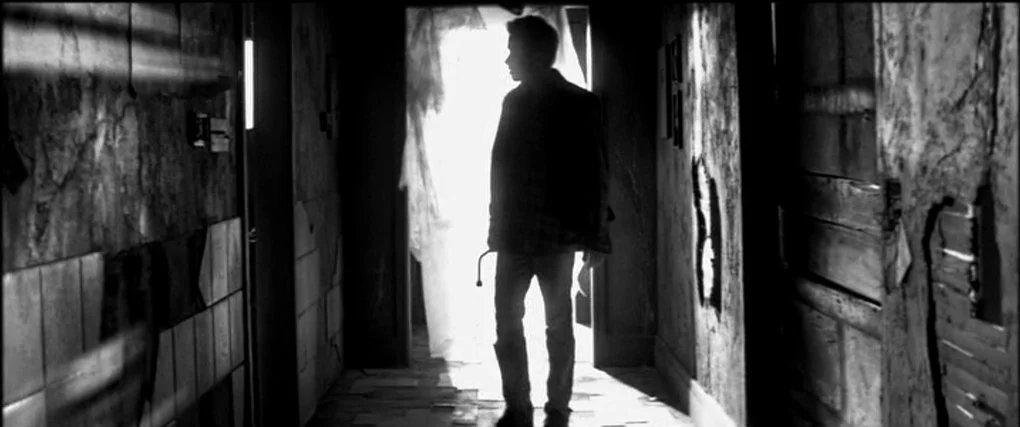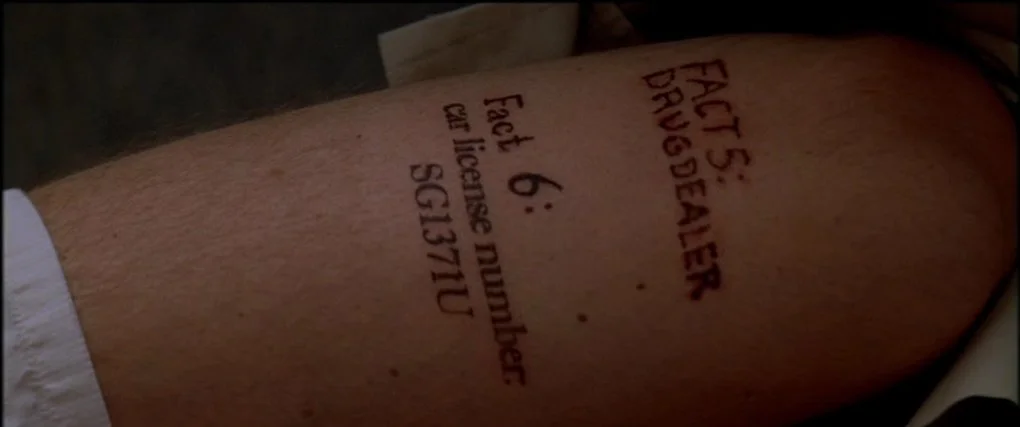Why Memento is a Cinematic Masterpiece
Disclosure: This post may contain affiliate links and I may receive a commission if you purchase through them.
As a lover of cinema, I've encountered countless films that have left an impression, but none quite like Christopher Nolan's "Memento." This movie isn't just my favorite; it's a film that has profoundly influenced my life in unexpected ways. From inspiring me to get random tattoos to even sporting a tattoo readable only in the mirror, Memento has left an indelible mark on me—both figuratively and literally. I still remember the day after the Academy Awards, heading to Blockbuster to rent it on VHS, eager to see the film that had been nominated for Best Original Screenplay and Best Film Editing. That experience was the start of a deep connection with a movie that continues to resonate with me today. This is a Spoiler Free Review, if you have not seen it yet, it is available to stream free with Amazon Prime
A Non-Linear Narrative That Captivates
Memento stands out primarily due to its innovative narrative structure. The story is told in reverse, mirroring the protagonist Leonard Shelby's struggle with short-term memory loss. This unconventional approach not only keeps the audience on the edge of their seats but also immerses them in Leonard's disorienting experience. The fragmented storytelling demands active engagement, making each viewing a fresh and intellectually stimulating experience.
Guy Pierce as Leonard Shelby
Masterful Cinematography
The cinematography in Memento is nothing short of exceptional. Wally Pfister's work behind the camera brings a unique visual style that complements the film's narrative complexity. The use of black-and-white sequences juxtaposed with color scenes is not just an aesthetic choice but a narrative device that distinguishes Leonard's past from his present. This visual differentiation helps the audience navigate the timeline while adding a layer of depth to the storytelling.
Unforgettable Monologues
One of the most compelling aspects of Memento is its monologues. Leonard's introspective dialogues and voiceovers offer profound insights into his psyche. These moments of reflection are crucial in understanding his motivations and the nature of his condition. The monologues are written with such depth and delivered with such conviction by Guy Pearce that they resonate long after the credits roll.
Guy Pierce
Stellar Cast Performances
The film features an outstanding cast that brings the intricate story to life. Guy Pearce's portrayal of Leonard Shelby is both haunting and captivating, capturing the nuances of a man trapped in his own mind. Carrie-Anne Moss delivers a powerful performance as Natalie, a complex character whose intentions are as ambiguous as the narrative itself. Joe Pantoliano, as Teddy, adds another layer of intrigue with his enigmatic and sometimes sinister presence. The chemistry and performances of these actors are pivotal in making Memento the gripping experience it is.
Carrie-Anne Moss as Natalie
Joe Pantoliano as Teddy
Tattoos as a Storytelling Device
Tattoos play a pivotal role in Memento, serving as Leonard's method of remembering crucial information. This unique use of tattoos as a narrative tool fascinated me so much that it inspired me to get my own random tattoos. One of them is a homage to the film—a tattoo that can only be read in the mirror. This personal connection to the movie is a testament to its profound impact on me.
Themes of Memory and Identity
Memento delves deep into themes of memory and identity, exploring how they shape our reality. Leonard's quest for vengeance is driven by his fragmented memories, raising questions about the reliability of memory and the essence of self. This philosophical exploration is woven seamlessly into the plot, making the film not just a thriller but also a thought-provoking piece of cinema.
Conclusion
Memento is a film that challenges, engages, and resonates. Its non-linear narrative, masterful cinematography, powerful monologues, stellar cast performances, and thematic depth make it a cinematic gem. For me, it is more than just a movie; it's an inspiration and a reminder of the complexities of memory and identity. If you haven't seen it yet, I highly recommend giving it a watch. You might just find yourself as captivated and inspired as I was.







